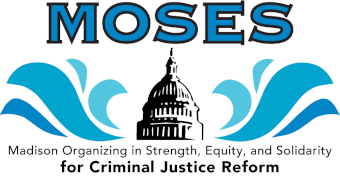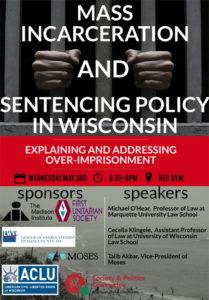Expand Your Knowledge of White Privilege and Racism
Ignorance may be bliss, but it certainly doesn’t help make the world a better place or further the goals of MOSES. Some great resources are listed below. If you know of additional resources, please list them in the comments section.
Videos:
PBS: Race: The Power of an Illusion. This is an excellent 3 part documentary from 2003 which can be purchased from California Newsreel, and is in some county libraries. Of great value is the online companion to the series, “Background Readings” which provides access to about 15 articles each on Society, History, and Science, all related to the topic and which can be read online.
See especially:
- Interview with Beverly Daniel Tatum under the Society section
- “Racial Preferences for Whites: The Houses that Racism Built,” a short Op/Ed piece by Larry Adelman.
The African Americans: Many Rivers to Cross 2013. Multi-part documentary by Henry Louis Gates, Jr. Just completed showing on PBS. Check libraries and future PBS schedule.
Slavery by Another Name 2012. Traces the 80 years of involuntary labor in the North and the South that followed the end of slavery through the ever-inventive creation of new “crimes” like vagrancy and long prison sentences which led to decades of forced labor. Available for $19.95 from PBS documentaries
Frontline: Two Nations of Black America. 1998 documentary by Henry Gates Jr, tracing the rise of some blacks and the social fall of others. $19.99 from PBS.
The House I Live In. Video version of The New Jim Crow: Mass Incarceration in the Age of Colorblindness, with some new twists. Was aired on PBS.
Beyond Hate (1991): Bill Moyers. (87 minutes) Excellent examination of why and who we hate, and discussion of what hate does to us and for us. Should be available in most libraries or can be purchased on amazon.
Harvest of Empire: 2012. Based on the book by Juan González. Examines the political events, social conditions, and U.S. government actions that led millions of Latino families to leave their homelands in an unprecedented wave of migration over the past six decades. Available at local libraries, on amazon and itunes.
Unnatural Causes (2008): acclaimed documentary series broadcast by PBS and now used to tackle the root causes of our alarming socio-economic and racial inequities in health. The four-hour series crisscrosses the nation uncovering startling new findings that suggest there is much more to our health than bad habits, health care, or unlucky genes. The social circumstances in which we are born, live, and work can actually get under our skin and disrupt our physiology as much as germs and viruses. Total of 4 hours, consisting of 7 segments:
In Sickness and In Wealth (56 min.) How does the distribution of power, wealth and resources shape opportunities for health
When the Bough Breaks (29 min.) Can racism become embedded in the body and affect birth outcomes?
Becoming American (29 min.) Latino immigrants arrive healthy, so why don’t they stay that way?
Bad Sugar (29 min.) What are the connections between diabetes, oppression, and empowerment in two Native American communities?
Place Matters (29 min.) Why is your street address such a strong predictor of your health? (This episode is available as a stand-alone DVD with English, Lao, Hmong, Vietnamese, Mandarin and Cantonese audio, as well as English and Mandarin subtitles.)
Not Just a Paycheck (30 min.) Why do layoffs take such a huge toll in Michigan but cause hardly a ripple in Sweden? A Forgotten Injustice: a documentary about deportation of two million Mexican -Americans during the great depression of 1930’s. Available on Youtube
BOOKS:
Colorblind: The Rise of Post-Racial Politics and the Retreat from Racial Equity by Tim Wise. Available in paper or in a lecture form. Wise, a well-respected white author writing on racism, argues against color blindness and for a deeper color consciousness in both public and private practice. See also White Like Me: Reflections on Race from a Privileged Son and Dear White America: Letter to New Minority addressing the sources of white anxiety, the rise of the Tea Party, and racialized nostalgia.
The New Jim Crow: Mass Incarceration in the Age of Colorblindness by Michelle Alexander, 2010, now available in paperback. This highly praised but demanding book is the “bible” of the prison transformation movement. It includes essential history of the last century and especially the last 30 years, explaining the origins of the drug war and its horrendous impact on black communities and our thinking. At least read the 19 page intro.
Dismantling Racism: A Workbook for Social Change Groups, by Kenneth Jones and Tema Okun, Change Work 2001. See article on ”White Supremacy Culture” at www.cwsworkshop.org/pdfs/CARC/Overview/3_White_Sup_Culture.PDF which discusses “white” characteristcs embedded in our organizations that may make some people of color uncomfortable, like perfectionism, worship of the written word, fear of open conflict, either/or thinking.
Lies my Teacher Told Me: James Loewen. “Everything your American History Teacher Got Wrong!”
Illegal: Peter Geniesse Documents the struggles of people from Mexico trying to enter the U.S.
More than Just Race: Being Black and Poor in the Inner Cities. Available on amazon.
INTERNET:
To test your unconscious bias, go to http://implicit.harvard.edu/implicit/ which offers on-line tests offered by Harvard University to test unconsciousness bias. We all have some type of racism in us; let’s recognize it and deal with it.
whatsrace.org Take the racial literacy quiz. See Toolbox with low-risk, medium-risk, and high-risk “engagement games” to use with groups.
Race Matters and More Race Matters Toolkits: Annie E. Casey Foundation
This toolkit is designed to help decision-makers, advocates, and elected officials get better results in their work by providing equitable opportunities for all. The toolkit presents a specific point of view on addressing unequal opportunities by race and offers simple, results-oriented steps to help you achieve your goals. Also see the companion series, MORE Race Matters. These publications serve to complement the Annie E. Casey Foundation’s Race Matters Toolkit by providing users with additional guidelines, tips and additional tools.
Project NIA Launched in 2009 in Chicago, Project NIA is an advocacy, organizing, popular education, research, and capacity-building center with the long-term goal of ending youth incarceration. Project is based on the belief that several simultaneous approaches are necessary in order to develop and sustain community-based alternatives to the system of policing and incarceration. A 350 page downloadable curriculum is available on the site. Can be used with kids or adults and includes sessions on racism and privilege.
We Need to Talk About an Injustice. A moving and powerful 23 minute TED talk by Bryan Stevenson, Executive Director of the Equal Justice Initiative, about why black incarceration in the U.S. should be the key burning issue in our entire country (and why it is the core of our 11×15 Campaign).
“In Defense of a Loaded Word”, article by Ta-Nehisi Coates in Sunday Review Section of New York Times, 11/25/13. Very nuanced analysis of the different perspectives on use of the forbidden word, and an argument why black people should be able to use it.
How Racist Are We? Ask Google. Interesting article tracing what percentage of votes Obama lost in 2008 due purely to racial antagonism.




Leave a Reply
Want to join the discussion?Feel free to contribute!